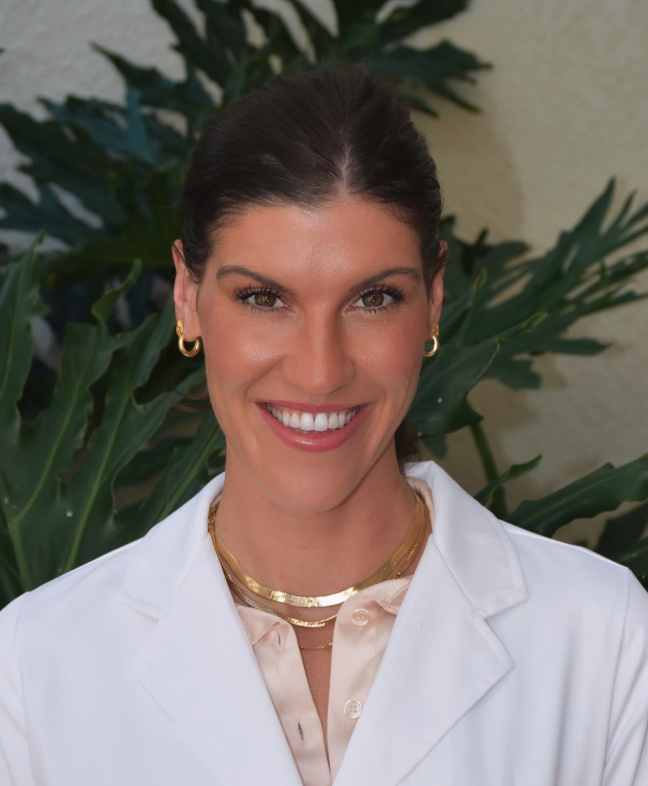When Hormonal Acne Hits Hard—Even With a Healthy Cycle
Chelsea Smithback, ND
During ovulation, S, a woman in her mid-20s, started noticing painful breakouts along her jawline and forehead. These cystic pimples were deep, red, and hard to ignore. She also had some small clogged pores on her back. Despite having regular periods, her skin told a different story.
She rated her acne as an 8 out of 10 in severity. After meals, she felt mildly bloated. And emotionally, the acne had taken its toll. She shared that she was feeling tired, losing hair, and battling anxiety and low moods.
Her skincare routine was pretty straightforward:
- Creamy cleanser
- Benzoyl peroxide
- Collagen hydrator and serum
But something deeper was going on.
Getting to the Root Cause of Acne
Instead of adding more products or prescriptions, we focused on figuring out why her acne was occurring.
At our first visit, I considered three common root causes:
- Hormonal imbalances, especially androgens
- Gut issues, like leaky gut or food sensitivities
- Blood sugar imbalances and insulin resistance
I ordered a full set of labs to examine her hormone levels, inflammation markers, nutrient status, and liver function. These included estrogen, progesterone, testosterone, thyroid hormones, insulin markers, iron, vitamin D, and more.
In the meantime, we started her on a foundational plan:
- AcnuTrol, a supplement with skin-supportive nutrients
- Liver support herbs, to help the body detox excess hormones
- Probiotics, to support digestion and the gut-skin connection
- Insomnitol, a sleep supplement, for better overnight skin repair
- Elimination diet, removing dairy, gluten, and sugar
- Bentonite clay masks for topical care
- Box breathing and positive affirmations to reduce stress and skin anxiety
If needed, we also planned to revisit her gut health with a GI-MAP test.
First Follow-Up: Early Signs of Improvement
Three weeks in, she already noticed a difference. Her acne started calming down, and her energy felt more stable.
The lab results revealed:
- Low progesterone with normal estrogen, which pointed to estrogen dominance
- Low testosterone, which meant we skipped herbs like saw palmetto that block androgens
To balance her hormones, I added a supplement blend that included:
- Vitex (chasteberry)
- St. John’s wort, passionflower, dandelion, dong quai, and wild yam
These herbs can support progesterone and ease PMS symptoms naturally.
Because DIM (a supplement that helps process estrogen) can sometimes make acne worse when testosterone is low, I held off on using it for now.
We also discovered a mildly elevated liver enzyme (ALT), which suggested mild inflammation. So, we continued her liver support protocol.
Second Follow-Up: A Major Turnaround
At her next check-in, she had experienced a small setback after starting the PMS support formula. Her skin flared up again, and her period was delayed. Suspecting sensitivity to vitex, I had her stop taking it.
What happened next was encouraging:
- Her acne improved by 90%, with only occasional jawline breakouts
- Bloating was mainly gone, showing up only before her period or after certain foods
- Mood and energy levels were better
With those wins, we simplified her plan:
- Continue Acnutrol and probiotic, with a reduced dose of the liver herbs
- Introduced fish oil to support mood, inflammation, and gut health
- No need for additional gut testing at this time
Why This Worked: Understanding Holistic Acne Care
Acne is more than skin deep. It can be caused by multiple internal factors, including:
- Hormonal shifts
- Food sensitivities
- Blood sugar imbalance
- Gut health
- Liver function
- Stress and emotional wellness
In this case, a gut-liver-hormone connection was at play. By supporting digestion, reducing inflammatory foods, and gently balancing hormones, her skin was finally able to heal.
The Role of Diet and Gut Health
Cutting out dairy, gluten, and sugar made a big difference. These foods can spike insulin and IGF-1, which boost oil production and trigger acne.
The gut-skin connection is also key. Research shows that over half of the people with acne have gut imbalances. When the gut lining is irritated or inflamed, it can influence hormone levels and the immune system, both of which affect the skin.
Probiotics reduced her bloating and promoted a healthier balance of bacteria in the gut, which in turn helped calm skin inflammation.
Why I Support Liver Health for Acne
The liver processes hormones like estrogen and makes key proteins that affect hormone levels. If the liver is sluggish, hormones can recirculate, leading to imbalances like estrogen dominance.
In this case, liver support helped lower inflammation, promote detoxification, and restore hormones. That translated to clearer skin and a calmer cycle.
Final Thoughts
Acne is not just a cosmetic issue. It’s your body’s way of signaling that something deeper is off-balance. When we listen closely and treat the root cause—whether hormonal, digestive, or emotional—the skin can heal.
If you’re struggling with acne, know your body is not broken. With the right support, you can uncover what’s beneath the breakouts and feel good in your skin again.

Dr. Smithback is a licensed naturopathic medical doctor, personal trainer, and nutritionist in San Diego. She became a doctor because she wants to see her patients not only be healthy but truly thrive in their lives, becoming their best, strongest, most vibrant, and happiest selves. Her clinical specialties include sports medicine, PRP injections, IV therapy, skin health, mental health, hormones, weight management, and gut health.




